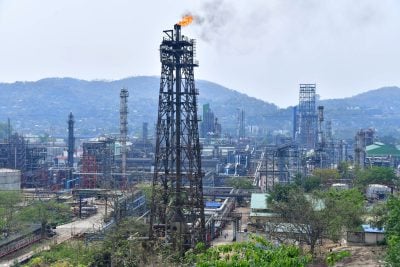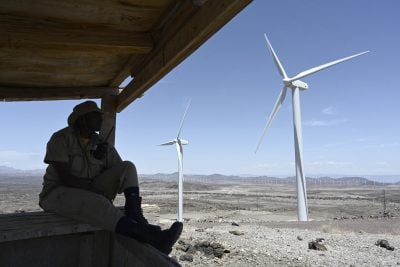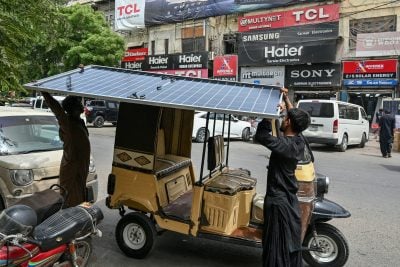With millions still going hungry and agriculture a major contributor to climate change, how can we find sustainable solutions to the world’s food problems? The UN Secretary General’s Special Envoy for the 2021 Food Systems Summit, Agnes Kalibata, answers our questions
In advance of next year’s UN Food Systems Summit, many people are saying that the world’s food systems are broken. What needs fixing?
We are producing probably 300 to 400 times as much food as we did in the 1950s and we have figured out completely new ways of producing food that should make it very easy for us to be comfortable from a food security perspective.
But we still have 690m people that are going hungry. We have excess food in the system but food is not getting to some of the people who need it most. Then there is the fact that food-related diseases are the number one cause of death when you look at what is happening from a global perspective. I think 22 to 30% of deaths globally are the result of how we eat.
Lastly, right now, one third of emissions contributing to climate change come from the agricultural sector itself. We have figured out unbelievable ways of producing food, but we are doing it in a manner that is not sustainable. We are doing it in a manner that is not feeding us better and we are doing it in a manner that is not reaching the most vulnerable among us. That’s why people say that our food systems are broken.
What has been the impact of Covid-19 on global food systems?
For people that depend on imported food, we saw a rise in the cost of food, largely as a result of disrupted supply chains.
The disruption to supply chains even at local level started being a major problem. The biggest victims of that ripple effect have probably been SMEs that work in the agricultural landscape. SMEs in the agriculture landscape are responsible for the movement of 80% of the food that is eaten away from the farm.
This was a major challenge for them and of course, for the jobs that are associated with them. They are the biggest employers in the agricultural sector. This has been a major disruption in our agricultural landscape.
There is also the issue of lost harvests, for those countries in season such as those in Southern Africa.
Since people figured out that Covid is probably going to be here for longer than a month – which is what people originally thought – the system has begun to slowly pick up again, though very cautiously. But overall we have so far managed to respond to the crisis and countries saw that food, like health, was a critical good that required special treatment and needed to keep moving. So mechanisms were put in place to make this happen.
Are you encouraged by the measures taken in Africa?
Probably the biggest challenge our countries are facing is funding in the face of Covid-19. After protecting people, the next biggest investment should be supporting the agricultural sector, for two reasons: first, because it will ensure that we have a safety net system. Second, because it contributes 30% of our of GDP and we will probably contribute more as some of the other sectors suffer.
We import significant amounts of food and this is an opportunity to look at those markets and see how they can be part of harnessing and contributing to how we strengthen the resilience of farming goods in these countries.
Are governments ensuring they’re not overly reliant on different supply chains and becoming more self-sufficient in food production?
It’s very interesting because there are major conversations really looking at supply chains, and for good reasons. People are worried that as Covid continues to be a challenge we will need to shorten supply chains. It’s not just Africa, Europe is looking at it. In their case it’s more to do with reducing the carbon footprint of food. In Africa it’s more about building resilience.
Food systems contribute a third of all greenhouse gas emissions. Is this also the case in Africa and are there quick wins to reduce emissions?
They say that Africa’s contribution to greenhouse gases is only about 3.8% but when you look at it from an agricultural perspective I’m sure we could do better. Instead of farming more land we could look at greater intensification, producing more with less. We could also definitely reduce the impact on biodiversity by looking at technology that could help us increase productivity without impacting the environment in a bad way. There are many ideas and very many technologies that can definitely have a huge impact.
Will it be easier to get consensus at the summit than it would have been a year ago?
A number of things have happened that may make it easier for us to get consensus. I think what we need to agree on now is what would constitute transformative action, what are going to be the trade-offs and how we should prepare for them.
When I look at the interest that the food system summit has raised globally it’s huge. Interest has been further galvanised by the onset of Covid. There’s a lot of clarity around the fact that we have many fragilities around our food systems. All that has contributed to recognising that we really must do something to build greater resilience in them. We need to act together.
For me it’s really a question of staying on top of that, ensuring that every country is engaged enough to be able to present its own action plan when it comes to dealing with the food systems and what needs to change around food systems in their particular context.
Are you positive that concrete actions will emerge from next year’s summit?
Food systems will offer solutions to how we deal with ending hunger, with nutrition and how we ensure that we strengthen resilience for families and households. These are all things that are within our control.
What has been lacking is how it all comes together with a real sense of purpose and ambition to get these things out of the way. It’s how we prioritise these problems. It’s how we look at them from a global perspective. It’s not an African problem, it’s not a European problem. What happened with Covid is a global problem, what happened before Covid with climate change is a global problem that impacts people very far removed from where some of these problems are happening.
For the first time we understand how interconnected we are with these challenges and really being able to work through all this together as a globe and as a community is going to be the test of our time.
Will Africa demand anything in particular?
This is not a place where we go to negotiate; this is a place where we frame solutions. Africa needs to come up with ambitious solutions for how it will deal with the problem of hunger, with nutrition, with the environment. For all those things, Africa has to come with its own solutions and Africa’s partners have to understand the role they have in strengthening that perspective, not just for Africa but for East Asia, for South America, for the private sector. So that’s why we’re not talking about trade-offs and we can’t have winners and losers. We have to have win-win solutions, where we support each other.
Agnes Kalibata is the UN Secretary General’s Special Envoy for the 2021 Food Systems Summit and President of the Alliance for a Green Revolution in Africa.
For more information about the UN Food Systems Summit 2021, visit the UN Sustainable Goals website
Related article
Want to continue reading? Subscribe today.
You've read all your free articles for this month! Subscribe now to enjoy full access to our content.
Digital Monthly
£8.00 / month
Receive full unlimited access to our articles, opinions, podcasts and more.
Digital Yearly
£70.00 / year
Our best value offer - save £26 and gain access to all of our digital content for an entire year!

 Sign in with Google
Sign in with Google 




